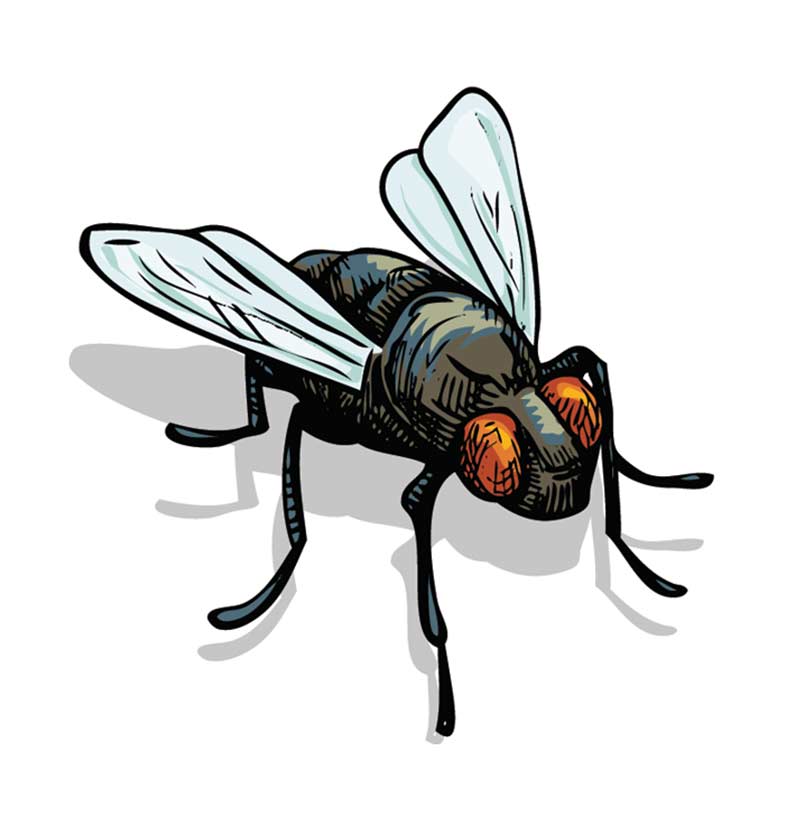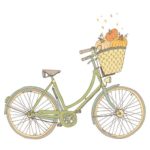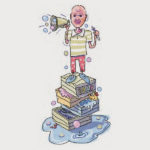
Flies may bug you but these creepy creatures are a crucial link in the circle of life.
A fly lands on your kitchen table. You grab the fly swatter and give it a whack. Perhaps you feel a certain satisfaction that your aim was true as you sweep away the tiny corpse.
It’s a familiar scene, one that is played out thousands of times on kitchen tables and window sills across Ontario.
But once you’ve read Super Fly, Jonathan Balcombe’s paean to the mosquito, the midge, the horsefly, the blackfly, the blowfly and the literally millions of other members of the order diptera – probably the most diverse animal order on the globe – you may consider putting your fly swatter away.
As more of us become aware of the vital role insects play in ensuring our food supply, even as human activities such as pesticide spraying threaten a “bugpocalypse,” it’s no surprise to find books reminding us of the critical role flies and the other members of the bug world play in maintaining our planet’s ecosystems.
Jonathan Balcombe, however, wants you to not only think about the impressive services flies provide – which range from cleaning up corpses to ensuring this year’s food crops – he’d also like you to consider that the mosquito landing on your arm has an interior life, is capable of feeling pain, can make choices, and perhaps even takes some pleasure in its short, fleeting existence. Just like you.
“I was always fascinated by animals,” says Balcombe, who was born in England, spent his early adulthood in Ontario where he studied biology at York and Carleton universities, and earned his PhD in ethology – animal behaviour – at the University of Tennessee. Like many of us, he spent time as a child in the great outdoors tracking down insects, and it became a lifetime passion. “Insects are so accessible,” he says.
Fruit flies demonstrate they are capable of making decisions based on past experience, that they are influenced by social factors and will avoid an adverse situation.
It was also as a child that Balcombe first considered the question of whether animals are sentient (capable of experiencing feelings) and conscious (aware of their own existence). He remembers going fishing as a boy, with its inevitable hook-baiting and other gruesomeness. “A lot of what I saw disturbed me. It looked like it wasn’t a lot of fun to them.”
“How they [animals] experience the world is a fascinating question. They’re aware of things. They’re doing things we didn’t think they were capable of doing. As things get smaller, we tend to underestimate them all the more.”
Jonathan Balcombe’s inclinations and education took him on a career arc that included serving as the Director of Animal Sentience with the Humane Society of the United States and working with People for the Ethical Treatment of Animals (PETA). After three decades in the United States he recently moved back to Canada, settling in Belleville to be close to family. “I really love it here. I love the access to nature.”
Super Fly is his sixth book, all of which explore facets of animal experience and cognition. Pleasurable Kingdom: Animals and the Nature of Feeling Good, which was published in 2006, makes the case that animals intentionally engage in activities that provide them enjoyment. What A Fish Knows, published in 2016, uses science and storytelling to visit the interior lives of those fish for whom Balcombe felt empathy as a child. The book drew praise from the Dalai Lama, who wrote, “We Buddhists consider all animals, including fish, as sentient beings who have feelings of joy and pain just as we humans do.”
Super Fly, published this year by Penguin Books, continues on the theme of sentience with Balcombe bluntly asking the question, “Is a fly a thing, or a being?” His position clearly falls on the side of beingness. “When I regard a fly cleaning his legs by rubbing them together or his wings by swiping them with his hindlegs, or when I watch a wasp or beetle preening her antennae by running them through her mouth, I see a creature with intent.”
The science, and Balcombe’s own experience, appear to back him up. He writes about witnessing fruit flies apparently learning to escape a trap set in a bowl of rotting peaches, and details other more controlled research in which fruit flies demonstrate they are capable of making decisions based on past experience, that they are influenced by social factors and will avoid an adverse situation – a beam of heat in the case of one experiment.
Balcombe tackles more than just the question of fly sentience. We learn about fly anatomy, fly predation, fly romance and procreation, and – in a truly fascinating and occasionally revolting chapter – how flies dispose of and recycle poop and compost dead carcasses. Writes Balcombe, “I shudder to think what this planet would look like and smell like if we didn’t have flies around to clean up the messes other creatures inevitably leave behind when they poop or perish.”
We learn about the very important roles that flies play in pollination, and the myriad evolution-driven adaptations in which both plants and insects become ever more specialized. We learn how the ability of flies to recycle is being put to industrial and agricultural uses – very soon you may be eating farmed animals that have dined on black soldier fly larvae. And we learn about the downside of living on a planet with an insect order that brings discomfort, disease, and death to millions even as it cleans up messes and ensures the continuity of life.
Balcombe concludes by asking us to care about flies, despite the down sides of sharing a world with them. He cites the ominous data showing that the total mass of insects on earth is falling by 2.5 per cent a year, “a rate of loss (and likely extinction) eight times faster than that of mammals, birds and reptiles.” In Germany researchers have found that the yearly loss added up to a 76 per cent decline in total biomass of flying insects over 30 years. The suspected culprits: pesticides and loss of habitat.
Why should we care? The Buddhists and Jonathan Balcombe would argue that, as living beings capable of feeling pain and making decisions, the world’s flies have the same right to live out their lives unmolested as we human beings do. Or perhaps we can learn to love the fly for reasons that have less to do with altruism and more to do with our own human future. As Jonathan Balcombe tells us, “Whatever justified angst and antipathy we may feel for certain flies, we can simultaneously cultivate respect, even reverence, for their essential place in the world. Failure to do so is not merely a moral mistake; it is a fatal ecological error.”
Story by:
Norm Wagenaar




